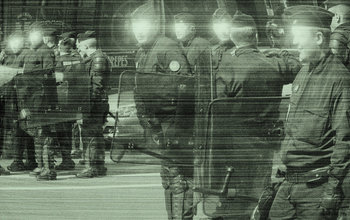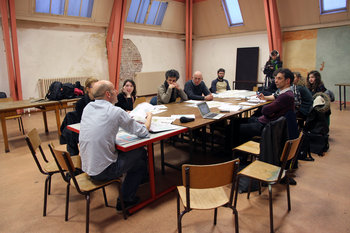|
| |
The social contract is a conceptual framework used to model the relationship between the individual and society whereby individuals give up some freedoms in exchange for the benefits of living in an ordered society. This is the foundation for modern political systems based on constitutional law and elected governments. The following are illustrative examples of the social contract.
Voting | Democracy | Constitutional freedoms | Freedom of speech | Freedom of expression | Personal sovereignty | Freedom of religion | Freedom of assembly | Right to privacy | Legal rights | Economic rights | Freedom of movement | Equal protection under the law | Right to education | Right to vote | Right to run for political office | Right to a fair trial | Protection under the law | Laws | Taxes | Regulations | Civic duty | Government authority | Jury duty | Census participation | Administrative requirements such as a need to register births and obtain government identification | Corporate social responsibility | Consumer protection | Environmental protection | Social safety net | Government services | Political rights | Emergency measures that override freedoms | International agreements |
If you enjoyed this page, please consider bookmarking Simplicable.
A list of major sociological theories.
The definition of medicalization with examples.
The definition of uncertainty avoidance with examples.
The definition of collectivism with examples.
The definition of paternalism with examples.
An overview of social accomplishments with examples.
TrendingThe most popular articles on Simplicable in the past day.
Recent posts or updates on Simplicable.
Site Map
© 2010-2023 Simplicable. All Rights Reserved. Reproduction of materials found on this site, in any form, without explicit permission is prohibited.
View credits & copyrights or citation information for this page.
|

















